Owning a dog can be one of the most rewarding experiences, but it’s not always a walk in the park. Some breeds, although adorable and charming, are notorious for having behavioral issues that can challenge even the most patient dog owner. If you’re considering bringing a new furry friend into your home, being aware of these potential quirks can help you prepare better and possibly avoid some common pitfalls.
1. Chihuahua: Tiny But Mighty In Attitude
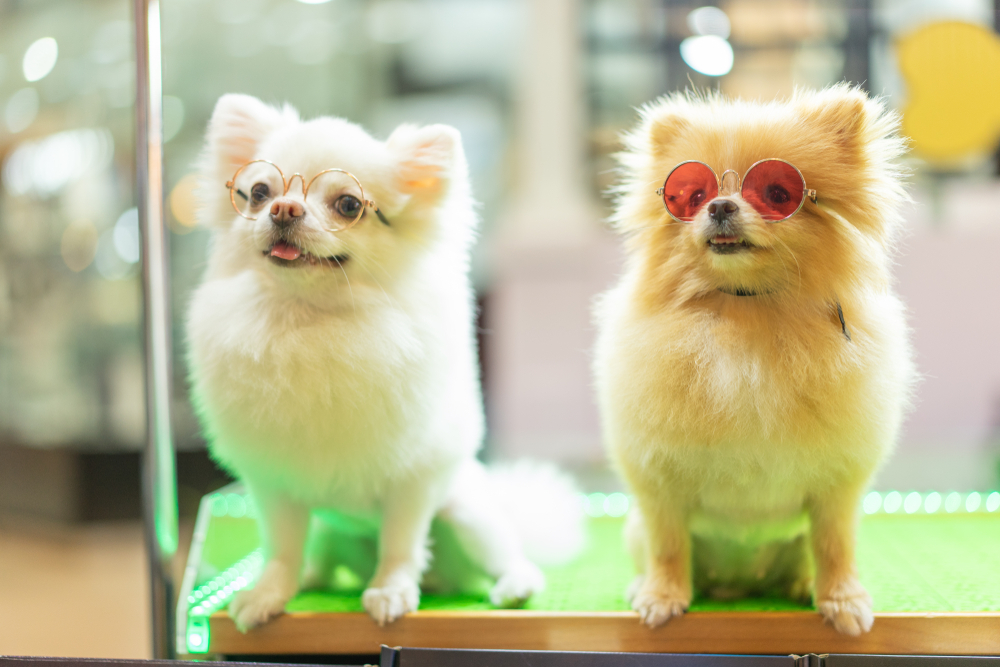
Chihuahuas often come across as little dogs with a big attitude. Despite their small size, they are known for being fiercely territorial and sometimes even aggressive. This breed may often bark excessively, and their tiny frames don’t do much to curb their bold nature. According to the American Kennel Club, it’s vital to socialize them early on to prevent them from becoming too overprotective and feisty with strangers. They’re also prone to developing a condition known as “small dog syndrome,” where they believe they’re the boss of the household. This can lead to behavioral problems if not addressed promptly. Due to their temperament, they might not be the best fit for households with young children.
In addition to their sometimes fiery disposition, Chihuahuas are also known for displaying separation anxiety. They form deep bonds with their human companions, which can lead to distress when left alone. The anxiety can manifest in destructive behaviors like chewing furniture or incessant barking. Ensuring that they have plenty of mental and physical stimulation can help alleviate some of these issues. Early training and positive reinforcement techniques can also be incredibly beneficial. Consistency is key when it comes to setting boundaries for these tiny dynamos.
2. Dachshund: The Stubborn Sausage Dog

Dachshunds, with their distinct long bodies and playful nature, are undeniably charming. However, they come with a reputation for stubbornness that can make training a challenge. This breed can be notoriously difficult to housebreak, requiring patience and consistent training methods. Their independent streak can sometimes lead them to ignore commands, especially if they think they have a better idea. According to VetStreet, dachshunds were originally bred for hunting, which means they have a strong prey drive and might not get along with smaller animals. They are known to dig and bark, behaviors that are deeply ingrained in their genetic makeup.
In addition to their quirky traits, dachshunds often experience back problems due to their unique body structure. This can lead to behavioral issues if they’re in pain or discomfort. Ensuring they don’t jump from heights or engage in rough play can help prevent injuries. Mental stimulation is crucial for this breed, as boredom can lead to destructive behaviors. Puzzle toys and interactive games can keep their clever minds occupied. Despite their stubbornness, with the right approach, dachshunds can be delightful companions.
3. Jack Russell Terrier: Energetic and Mischievous
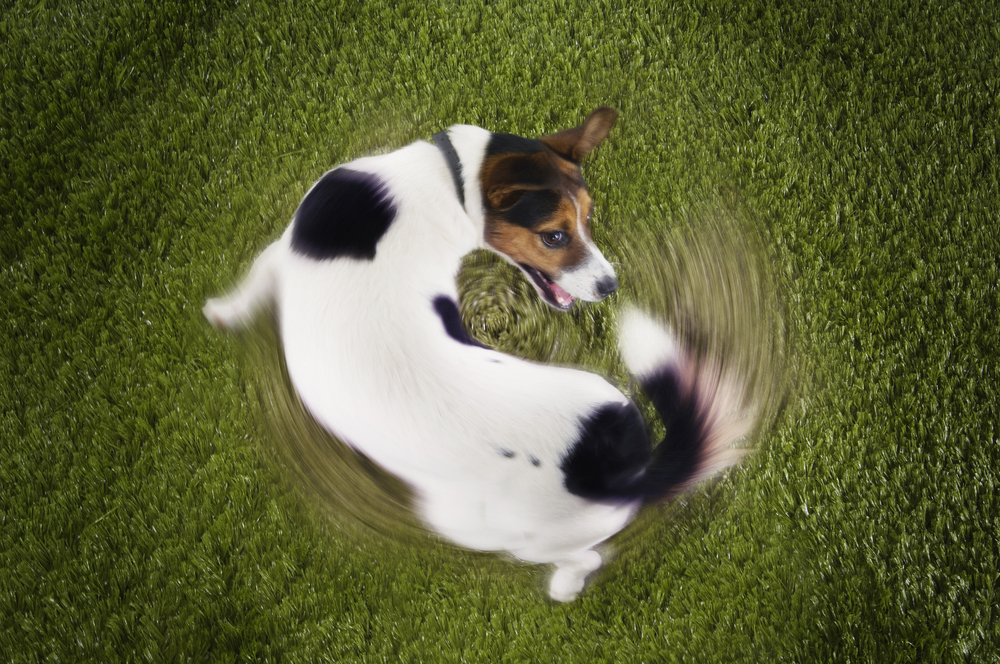
Jack Russell Terriers are known for their high energy levels and intelligence, but they can also be quite mischievous. This breed requires lots of physical and mental stimulation to prevent them from becoming bored, which can lead to destructive behaviors. They have a strong hunting instinct and a knack for chasing anything that moves, which can sometimes lead them into trouble. According to PetMD, these lively dogs thrive in environments where they have plenty of space to run and play. If they don’t get enough exercise, they may resort to digging, barking, or attempting to escape confinement.
Moreover, Jack Russell Terriers are known for being strong-willed, which can make training them a challenging endeavor. They require a firm yet gentle hand and benefit from consistent boundary setting. Socialization is critical for this breed to ensure they get along well with other dogs and people. They are often not recommended as a first dog for inexperienced owners due to their demanding nature. However, with proper training and lots of love, they can be incredibly rewarding companions. They excel in activities like agility and obedience trials, which can help channel their energy positively.
4. Bulldog: The Couch Potato with a Stubborn Streak
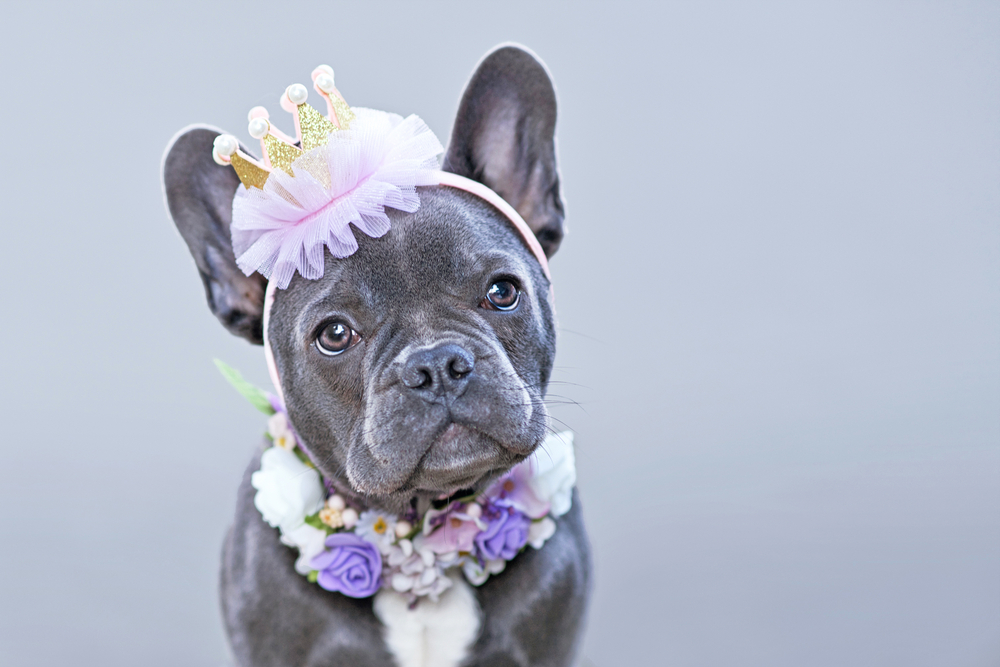
Bulldogs are known for their lovable, laid-back demeanor, but don’t let their lazy appearance fool you. They can be incredibly stubborn, often deciding to do things on their own terms. Training a bulldog requires a lot of patience and persistence, as they can be slow to respond to commands if they don’t see the point. This breed is also prone to developing certain behavioral issues if not trained properly, including possessiveness over toys or food. Despite their calm appearance, bulldogs can display bouts of aggression if they feel threatened or cornered. Adequate socialization from a young age can help mitigate these issues.
Bulldogs are also known for their health issues, which can contribute to behavioral problems. Problems such as breathing difficulties, skin infections, and joint issues can cause discomfort and lead to irritability. It’s essential to monitor their health closely and ensure they maintain a healthy weight to prevent additional strain on their bodies. Regular vet check-ups and a balanced diet can help keep these issues in check. Knowing how to manage their unique needs can make living with a bulldog an enjoyable experience.
5. Pekingese: The Regal yet Moody Companion

Pekingese dogs are often described as regal and dignified, thanks to their origins as companions to Chinese royalty. However, this regal nature can sometimes translate into a moody and aloof demeanor. They may act indifferent towards strangers and can be quite selective about the people they choose to bond with. Pekingese dogs are not the most trainable breed, mainly due to their independent and sometimes stubborn nature. They require a patient owner who can provide consistent training and establish themselves as the leader. This breed can also display possessive behavior over their belongings and people, which can lead to aggression if unchecked.
In addition to their sassy personalities, Pekingese are prone to certain health issues that can influence their behavior. Their flat faces can lead to breathing problems, which can cause anxiety or irritability. Regular grooming is also necessary to keep their luxurious coats in top condition, which requires them to be comfortable with handling. If a Pekingese feels stressed or uncomfortable, they might become snappy. Ensuring they have a calm and stable environment can help prevent undesirable behaviors. Despite their quirks, Pekingese can be incredibly loyal and loving companions once a bond is formed.
6. Shih Tzu: The Stubborn yet Charming Fluff Ball
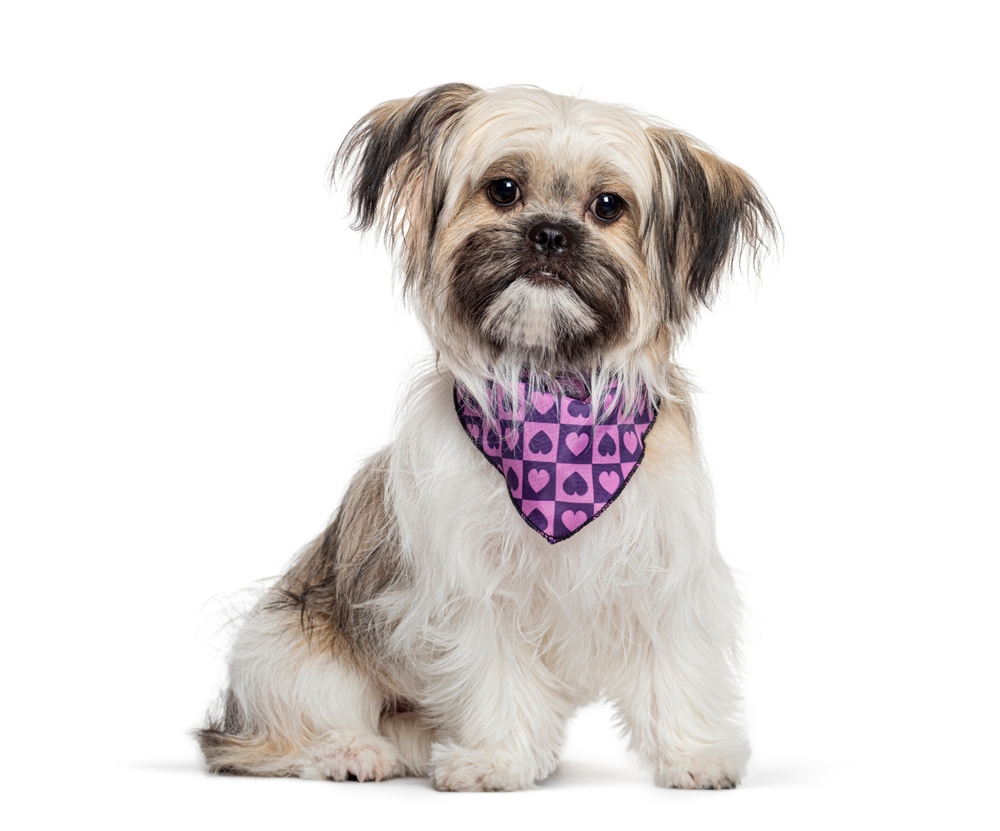
Shih Tzus are adored for their charming looks and loving nature, but they can also be quite stubborn. This breed tends to have a mind of its own and can be resistant to training if they don’t see immediate benefits. Patience and positive reinforcement are crucial when training a Shih Tzu, as harsh methods can make them even more obstinate. This breed is generally affectionate but can be wary of strangers, which can lead to barking and protective behaviors. Socialization from an early age can help them become well-rounded and sociable pets.
Shih Tzus also require regular grooming due to their long, flowing coats. If not groomed properly, they can develop skin issues that may result in discomfort and irritability. Regular grooming sessions not only help keep them looking their best but also provide an opportunity to bond with your pet. Health issues, particularly eye and respiratory problems, can also impact their behavior. These need to be monitored closely to ensure they are comfortable and happy. Despite their stubbornness, Shih Tzus are known for their friendly and affectionate nature, making them delightful companions for those who understand their needs.
7. Beagle: The Curious and Vocal Explorer

Beagles are known for their keen sense of smell and curious nature, which can sometimes lead them into mischief. Their love for exploring and following scents can result in them wandering away if they catch an interesting smell. This breed is also known for being quite vocal, often barking or howling when they detect something unusual. Beagles thrive in environments where they have plenty of opportunity for exercise and exploration. Without adequate stimulation, they may resort to destructive behaviors or excessive barking.
In addition to their curious nature, Beagles can be a bit stubborn, which can make training a challenge. This breed responds well to positive reinforcement techniques and enjoys activities that engage their minds. Beagles are generally good with children and other pets, making them great family dogs. However, their strong hunting instincts mean they may not get along with smaller animals. Regular exercise and mental stimulation are key to ensuring a happy and well-behaved Beagle. Despite their occasional stubbornness, Beagles are friendly, loving, and make excellent companions for active families.
8. Scottish Terrier: The Independent Highlander

Scottish Terriers, or Scotties, are known for their independent nature and strong personalities. This breed is often described as dignified and self-assured, which can sometimes come across as aloofness. Training a Scottie can be challenging due to their stubborn streak, but with patience and consistency, they can learn to follow commands. They are known to be territorial and may show aggression towards unfamiliar dogs and people. Early socialization is crucial to ensure they grow up to be well-adjusted pets.
Scottish Terriers also have a strong prey drive, which means they might chase small animals if given the chance. This breed is best suited for homes with secure yards where they can explore safely. Regular exercise is essential to keep them happy and prevent boredom. While they may be independent, Scotties form strong bonds with their families and can be incredibly loyal companions. Understanding their unique traits and providing them with a structured environment can help manage their behavioral quirks. With the right approach, Scottish Terriers can be delightful and loving pets.
9. Border Collie: The Energetic Workaholic

Border Collies are famed for their intelligence and working ability, often excelling in tasks that engage their keen minds. However, their high energy levels and need for mental stimulation can lead to behavioral issues if not properly channeled. This breed is known for being hyperactive and can become destructive if they do not receive enough exercise or mental challenges. They require a lot of attention and thrive in environments where they have a job to do. Border Collies excel in activities like agility, obedience training, and herding trials, which can help channel their natural instincts.
In addition to their energy, Border Collies can be strong-willed, which might make training them a challenge for inexperienced owners. They require consistent and positive training methods to help them develop into well-behaved dogs. This breed is known for forming strong bonds with their families and can become protective. Socialization is critical to prevent them from becoming wary of strangers or overly territorial. Despite their demanding nature, Border Collies are incredibly rewarding pets for active owners who can meet their needs. With the right environment, they can be both loving and loyal companions.
10. Akita: The Reserved and Dignified Guardian
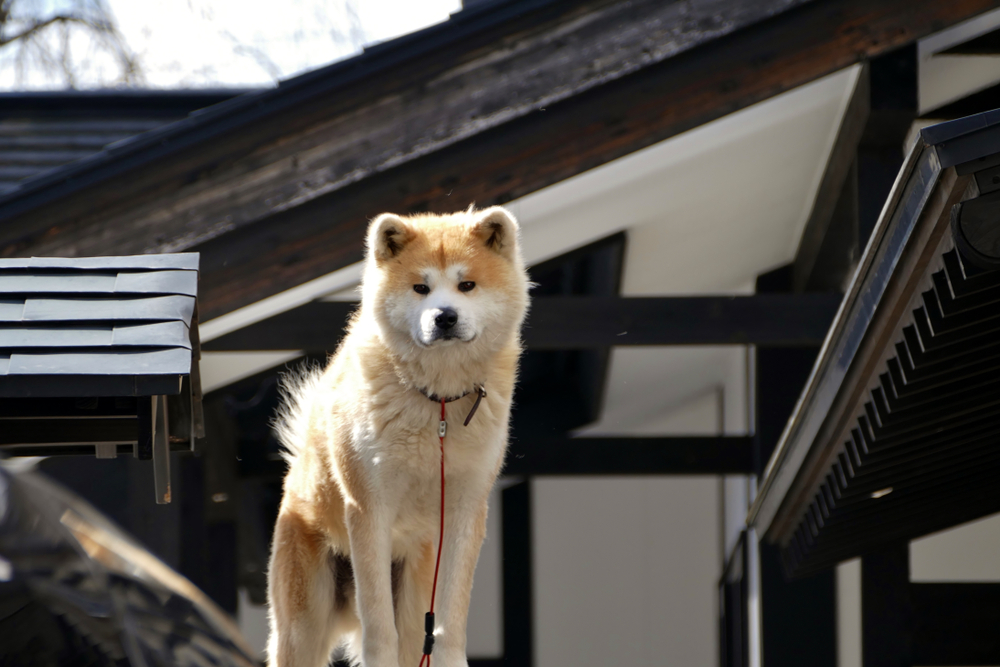
Akitas are known for their dignified and reserved nature, often forming strong bonds with their families while remaining aloof with strangers. This breed is known for being independent, which can sometimes come across as stubbornness during training. Akitas require an experienced owner who can provide firm and consistent leadership. They are known to be protective and may show aggression towards other dogs, especially if they feel their family is threatened. Socialization from a young age is crucial to ensure they are well-adjusted and confident.
In addition to their reserved nature, Akitas have a strong prey drive, making them unsuitable for homes with small pets. They need regular exercise to keep them happy and prevent boredom-related behaviors. This breed is best suited for homes with secure yards where they can explore safely. Akitas can be incredibly loyal and protective of their families, often acting as both companions and guardians. Understanding their unique needs and providing them with a stable and structured environment can help manage their behavioral quirks. Despite their challenges, Akitas are devoted and loving pets for the right owner.
11. Dalmatian: The Energetic and Social Butterfly
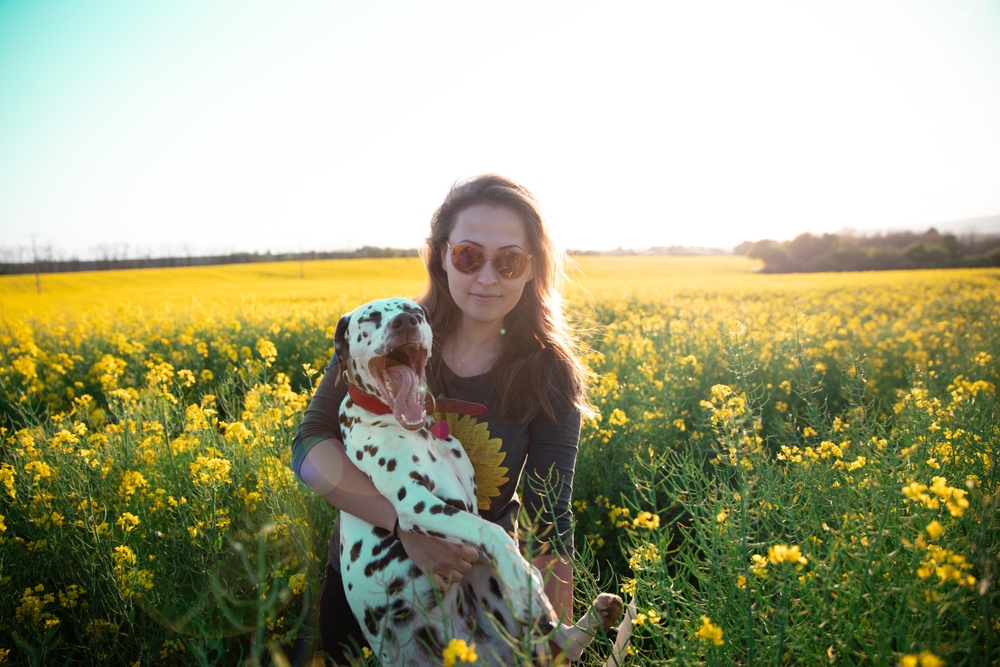
Dalmatians are known for their striking appearance and energetic nature, often thriving in active households. This breed requires a lot of exercise and mental stimulation to prevent boredom-related behaviors, such as destructive chewing or digging. Dalmatians can be strong-willed, which might make training a challenge for inexperienced owners. They respond well to positive reinforcement techniques and enjoy activities that engage both their bodies and minds. Without adequate stimulation, they can become restless and may develop behavioral problems.
In addition to their energy, Dalmatians are known for being social butterflies, often enjoying the company of both people and other dogs. However, they can be wary of strangers, and early socialization is crucial to ensure they grow up to be well-rounded pets. This breed is known for forming strong bonds with their families and can become protective. Regular exercise and mental challenges are key to ensuring a happy and well-behaved Dalmatian. Despite their demanding nature, Dalmatians are friendly, loving, and make excellent companions for active families. With the right environment and training, they can be both delightful and devoted pets.
12. Chow Chow: The Independent and Aloof Aristocrat
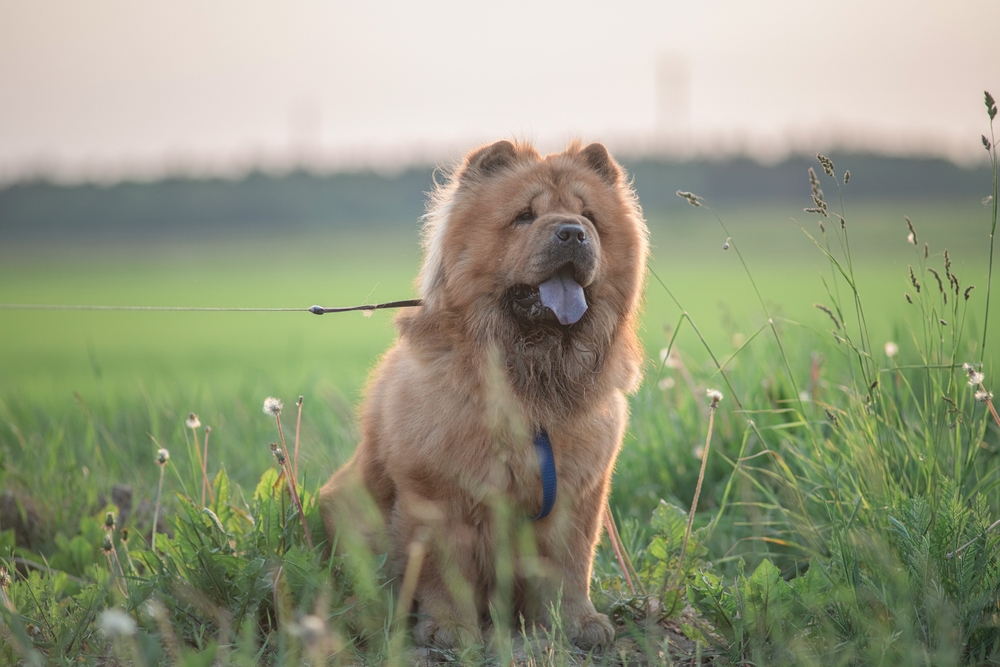
Chow Chows are known for their distinctive appearance and independent nature, often described as cat-like in their behavior. This breed can be quite aloof and reserved, forming strong bonds with their families while remaining indifferent to strangers. Chow Chows require an experienced owner who can provide firm and consistent leadership. They are known to be protective and may show aggression if they feel their family is threatened. Socialization from a young age is crucial to ensure they grow up to be well-adjusted and confident.
In addition to their aloofness, Chow Chows can be strong-willed, which might make training a challenge. Positive reinforcement techniques and consistent boundary setting can help manage their independent nature. This breed requires regular grooming to keep their thick coats in top condition, and they may not tolerate rough handling. Chow Chows can be incredibly loyal and protective of their families, often acting as both companions and guardians. Understanding their unique needs and providing them with a stable and structured environment can help manage their behavioral quirks. Despite their challenges, Chow Chows are devoted and loving pets for the right owner.
